Gastropod looks at food through the lens of science and history.
Co-hosts Cynthia Graber and Nicola Twilley serve up a brand new episode every two weeks.
Co-hosts Cynthia Graber and Nicola Twilley serve up a brand new episode every two weeks.
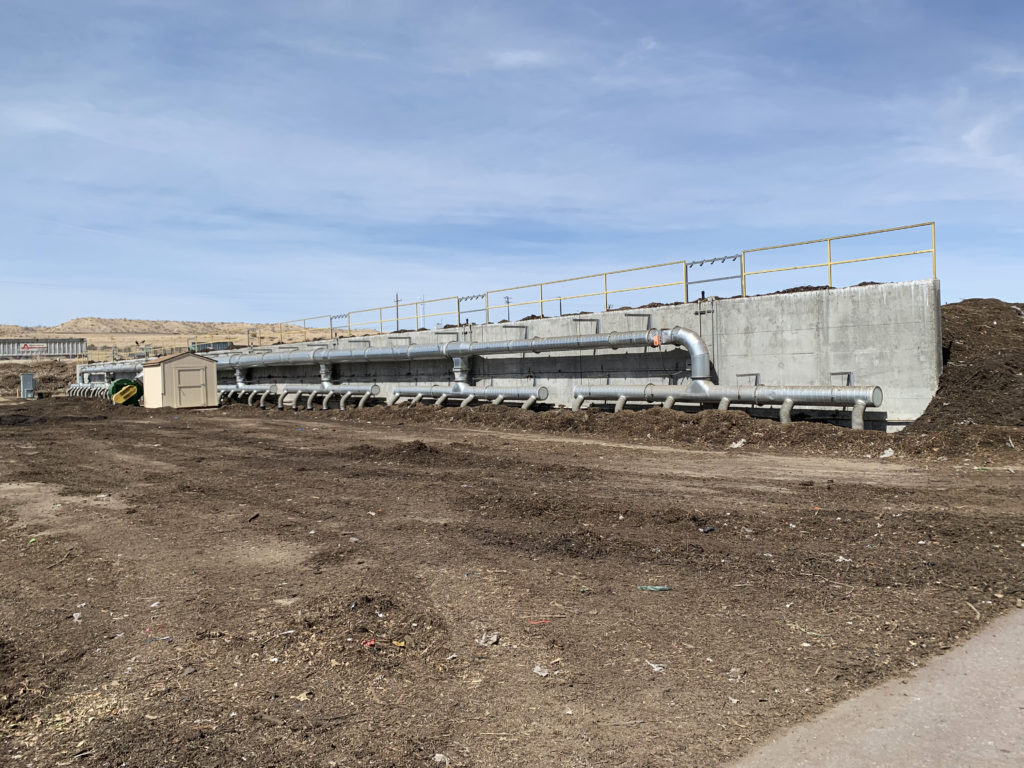
The side of the CASP concrete bunker at American Organics, showing the ducting and temperature probes. Photo by Nicola Twilley.
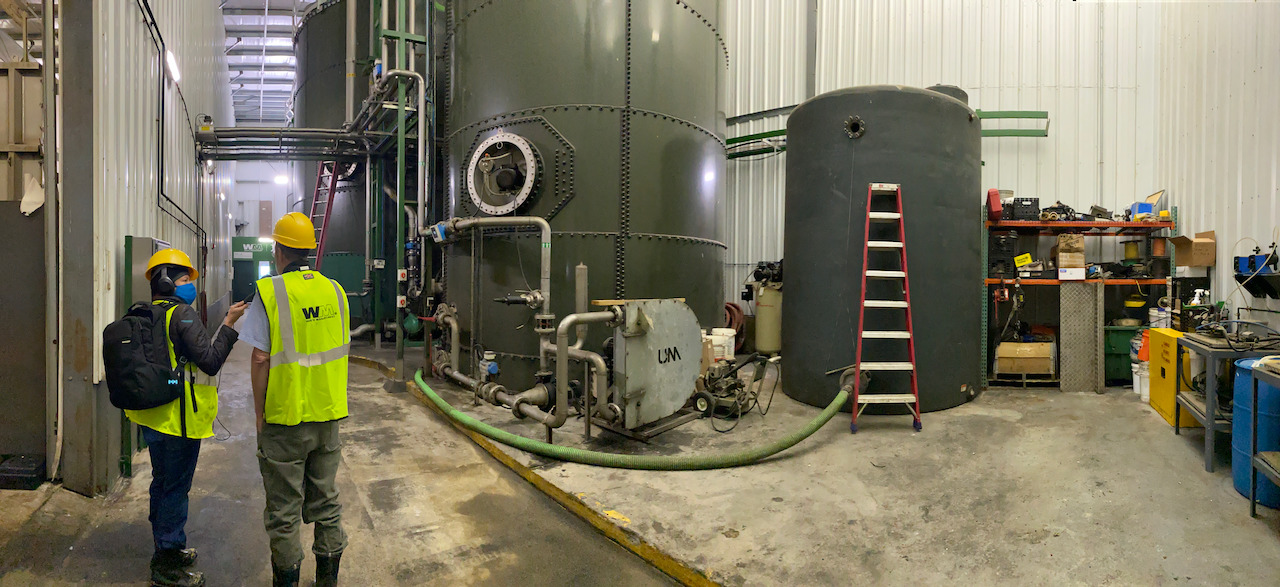
Behind the scenes at CORe, Waste Management's Central Organics Recycling facility in Charlestown, Massachusetts, where food waste is processed to be added to wastewater and turned into biogas and fertilizer. Photo by Saima Sidik.
Rachel Wagoner is the director of CalRecycle, California's Department of Resources Recycling and Recovery. You can read more about SB1383, the new law mandating that the state keep 75 percent of its organic waste out of landfills by 2025, here.
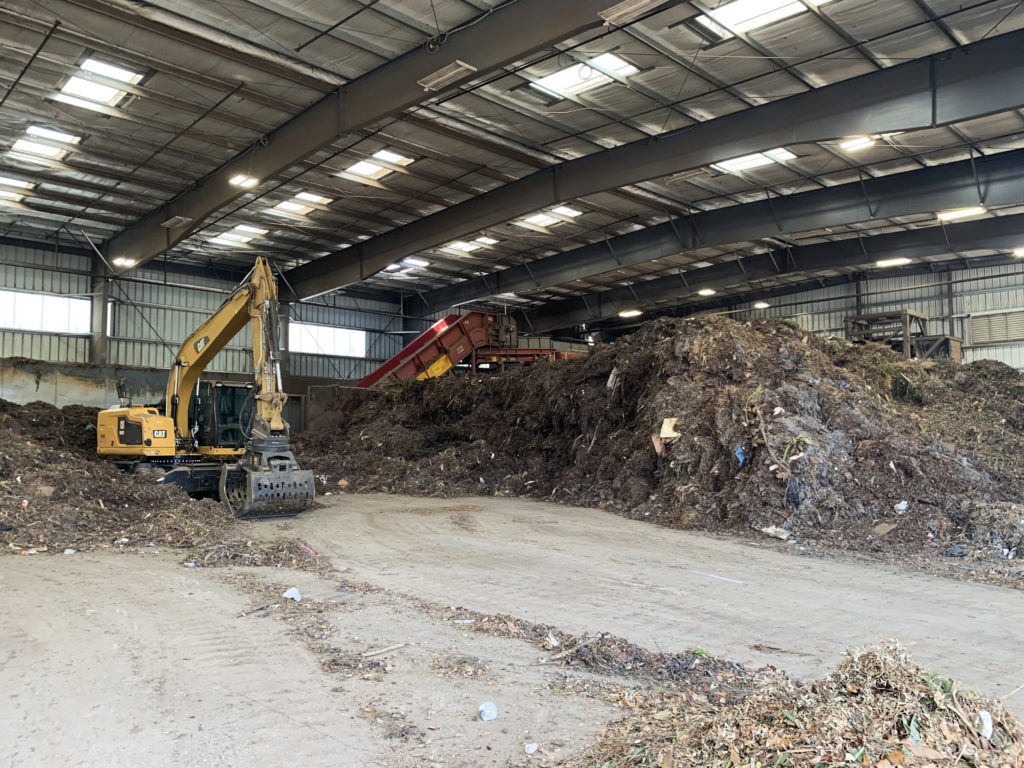
The receiving shed at American Organics in Victorville, CA. Photo by Nicola Twilley.
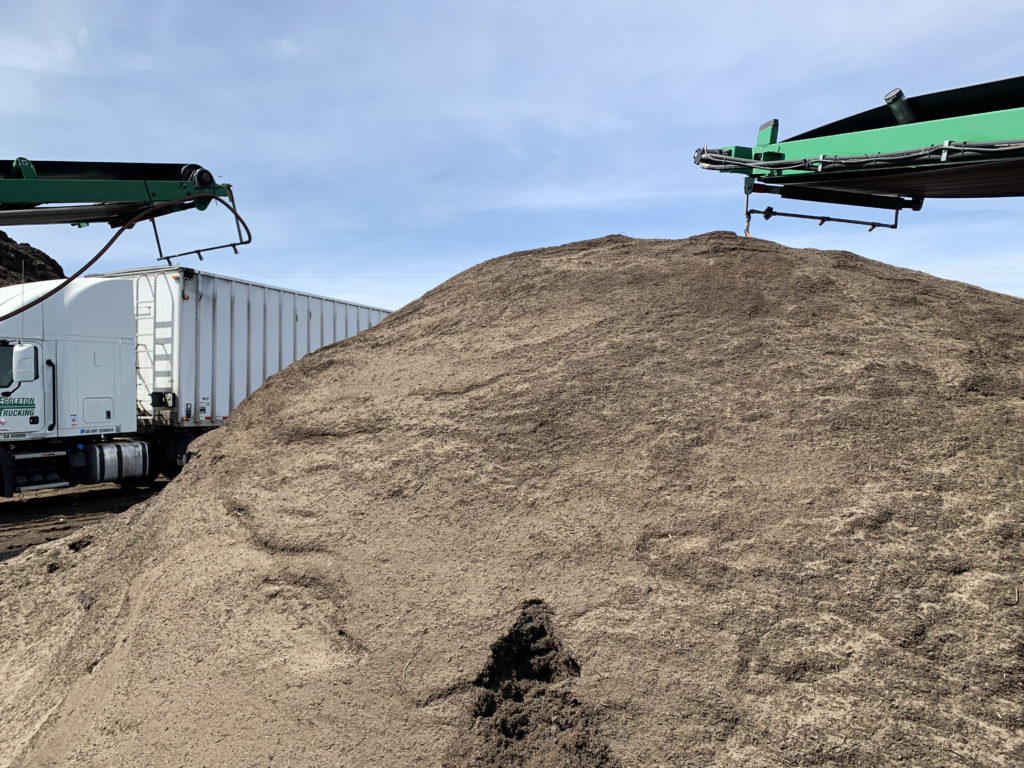
Finished compost at American Organics in Victorville, CA. Photo by Nicola Twilley.
Nora Goldstein is the editor of the digital magazine BioCycle, which has been covering topics in organics recycling—from food waste to biogas to policy and regulations—since 1996.
Lily Pollans is an assistant professor of urban policy and planning at Hunter College. She is the author of Resisting Garbage: The Politics of Waste Management in American Cities.
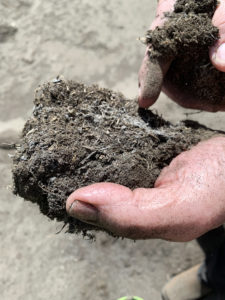
Keith Churchill points to a grey fungus in the finished compost that shows how full of nitrogen it is. Photo by Nicola Twilley.
Keith Churchill is the director of organics for the L.A.-based waste diversion and recycling company Athens Services. He runs an industrial compost site called American Organics, which Nicky visited in Victorville, California.
Jamie Ecker is the director of organics project management and technology at Waste Management, the largest company handling—as the name suggests!—waste management in the U.S.
Konrad Novakowski is the plant manager of Waste Management's CORe facility, a residential and commercial food waste composting site in Charlestown, Massachusetts.
Cheri Cousens is the executive director of the Greater Lawrence Sanitary District's anaerobic digester, which processes CORe's food waste and the solids removed from wastewater into biogas and fertilizer pellets.

Piles of food cover the floor at CORe, ready to be processed into slurry. (You'll note quite a few pumpkins, as our visit was in October!) Photo by Saima Sidik.
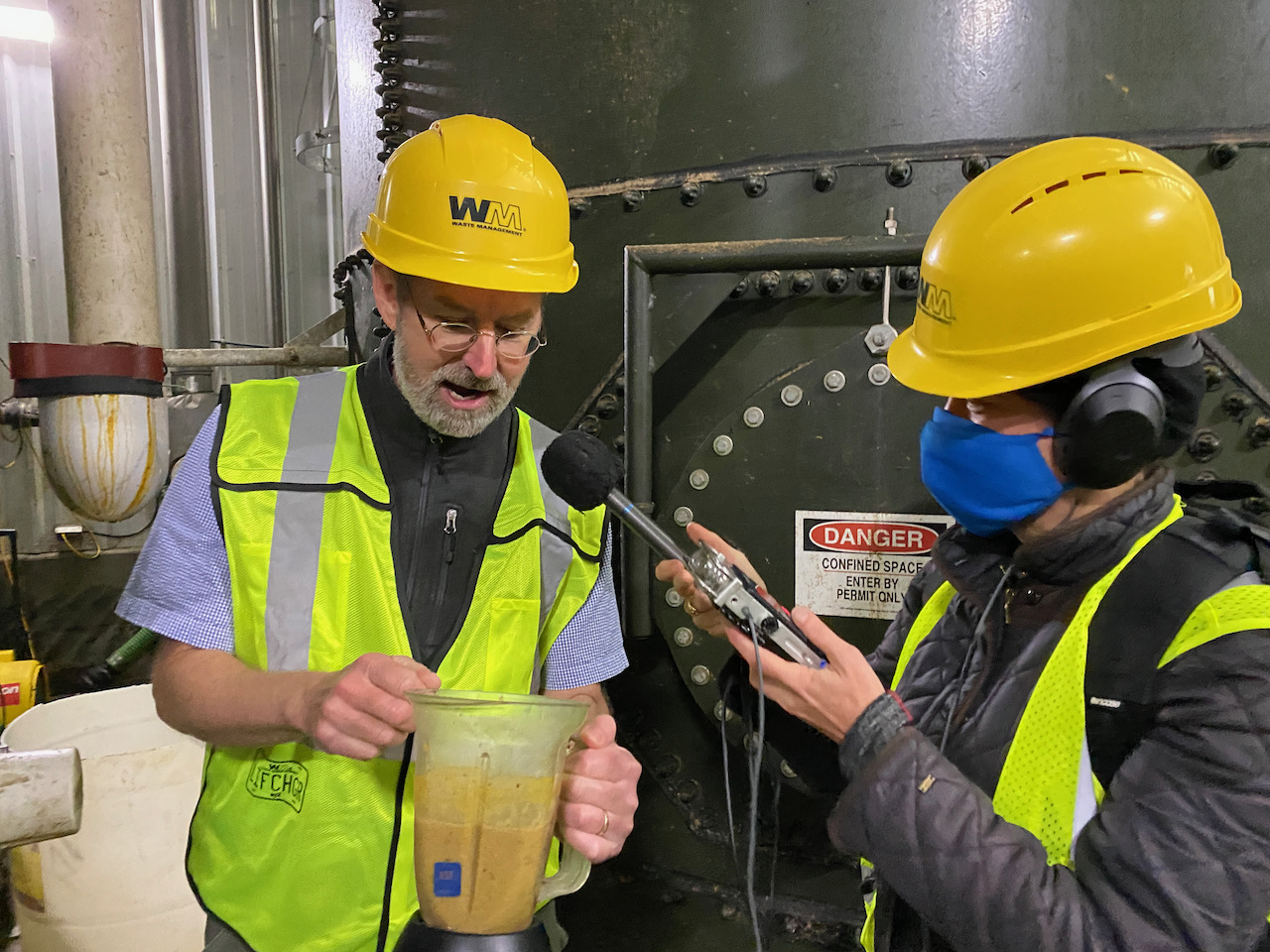
Jamie Ecker shows Cynthia the final "lentil soup" food waste slurry that is added to wastewater for anaerobic digestion. Photo by Saima Sidik.
Cissy Ma is a research engineer with the Environmental Protection Agency (EPA), where her research involves assessing the sustainability of various systems, including drinking water, wastewater, stormwater, and green infrastructure. She co-authored a 2020 paper that presented the results of a lifecycle analysis of the impacts of co-digesting food with wastewater at the Greater Lawrence Sanitary District's anaerobic digester.
This episode of Gastropod was supported by a generous grant from the Alfred P. Sloan Foundation for the Public Understanding of Science, Technology, and Economics. Check out the other books, movies, shows, podcasts, and more that they support here.
Click here for a transcript of the show. Please note that the transcript is provided as a courtesy and may contain errors.